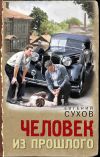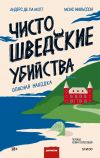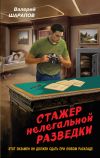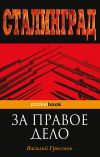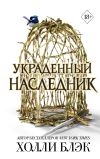Текст книги "The Great Boer War"

Автор книги: Arthur Conan Doyle
Жанр: Зарубежная публицистика, Публицистика
Возрастные ограничения: +12
сообщить о неприемлемом содержимом
Текущая страница: 43 (всего у книги 43 страниц)
On the morning of Monday, March 24th, a line of eighty miles of horsemen, without guns or transport, was sweeping back towards the blockhouses, while the country between was filled with scattered parties of Boers who were seeking for gaps by which to escape. It was soon learned from the first prisoners that De la Rey was not within the cordon. His laager had been some distance farther west. But the sight of fugitive horsemen rising and dipping over the rolling veld assured the British that they had something within their net. The catch was, however, by no means as complete as might have been desired. Three hundred men in khaki slipped through between the two columns in the early morning. Another large party escaped to the southwards. Some of the Boers adopted extraordinary devices in order to escape from the ever-narrowing cordon. 'Three, in charge of some cattle, buried themselves, and left a small hole to breathe through with a tube. Some men began to probe with bayonets in the new-turned earth and got immediate and vociferous subterranean yells. Another man tried the same game and a horse stepped on him. He writhed and reared the horse, and practically the horse found the prisoner for us.' But the operations achieved one result, which must have lifted a load of anxiety from Lord Kitchener's mind. Three fifteen-pounders, two pom-poms, and a large amount of ammunition were taken. To Kekewich and the Scottish Horse fell the honour of the capture, Colonel Wools-Sampson and Captain Rice heading the charge and pursuit. By this means the constant menace to the blockhouses was lessened, if not entirely removed. One hundred and seventy-five Boers were disposed of, nearly all as prisoners, and a considerable quantity of transport was captured. In this operation the troops had averaged from seventy to eighty miles in twenty-six hours without change of horses. To such a point had the slow-moving ponderous British Army attained after two years' training of that stern drill-master, necessity.
The operations had attained some success, but nothing commensurate with the daring of the plan or the exertions of the soldiers. Without an instant's delay, however, Lord Kitchener struck a second blow at his enemy. Before the end of March Kekewich, Rawlinson, and Walter Kitchener were all upon the trek once more. Their operations were pushed farther to the west than in the last drive, since it was known that on that occasion De la Rey and his main commando had been outside the cordon.
It was to one of Walter Kitchener's lieutenants that the honour fell to come in direct contact with the main force of the burghers. This General had moved out to a point about forty miles west of Klerksdorp. Forming his laager there, he despatched Cookson on March 30th with seventeen hundred men to work further westward in the direction of the Harts River. Under Cookson's immediate command were the 2nd Canadian Mounted Infantry, Damant's Horse, and four guns of the 7th R.F.A. His lieutenant, Keir, commanded the 28th Mounted Infantry, the Artillery Mounted Rifles, and 2nd Kitchener's Fighting Scouts. The force was well mounted, and carried the minimum of baggage.
It was not long before this mobile force found itself within touch of the enemy. The broad weal made by the passing of a convoy set them off at full cry, and they were soon encouraged by the distant cloud of dust which shrouded the Boer wagons. The advance guard of the column galloped at the top of their speed for eight miles, and closed in upon the convoy, but found themselves faced by an escort of five hundred Boers, who fought a clever rearguard action, and covered their charge with great skill. At the same time Cookson closed in upon his mounted infantry, while on the other side De la Rey's main force fell back in order to reinforce the escort. British and Boers were both riding furiously to help their own comrades. The two forces were fairly face to face.
Perceiving that he was in front of the whole Boer army, and knowing that he might expect reinforcements, Cookson decided to act upon the defensive. A position was rapidly taken up along the Brakspruit, and preparations made to resist the impending attack. The line of defence was roughly the line of the spruit, but for some reason, probably to establish a cross fire, one advanced position was occupied upon either flank. On the left flank was a farmhouse, which was held by two hundred men of the Artillery Rifles. On the extreme right was another outpost of twenty-four Canadians and forty-five Mounted Infantry. They occupied no defensible position, and their situation was evidently a most dangerous one, only to be justified by some strong military reason which is not explained by any account of the action.
The Boer guns had opened fire, and considerable bodies of the enemy appeared upon the flanks and in front. Their first efforts were devoted towards getting possession of the farmhouse, which would give them a point d'appui from which they could turn the whole line. Some five hundred of them charged on horseback, but were met by a very steady fire from the Artillery Rifles, while the guns raked them with shrapnel. They reached a point within five hundred yards of the building, but the fire was too hot, and they wheeled round in rapid retreat. Dismounting in a mealie-patch they skirmished up towards the farmhouse once more, but they were again checked by the fire of the defenders and by a pompom which Colonel Keir had brought up. No progress whatever was made by the attack in this quarter.
In the meantime the fate which might have been foretold had befallen the isolated detachment of Canadians and 28th Mounted Infantry upon the extreme right. Bruce Carruthers, the Canadian officer in command, behaved with the utmost gallantry, and was splendidly seconded by his men. Overwhelmed by vastly superior numbers, amid a perfect hail of bullets they fought like heroes to the end. 'There have been few finer instances of heroism in the course of the campaign,' says the reticent Kitchener in his official despatch. Of the Canadians eighteen were hit out of twenty-one, and the Mounted Infantry hard by lost thirty out of forty-five before they surrendered.
This advantage gained upon the right flank was of no assistance to the Boers in breaking the British line. The fact that it was so makes it the more difficult to understand why this outpost was so exposed. The burghers had practically surrounded Cookson's force, and De la Rey and Kemp urged on the attack; but their artillery fire was dominated by the British guns, and no weak point could be found in the defence. At 1 o'clock the attack had been begun, and at 5.30 it was finally abandoned, and De la Rey was in full retreat. That he was in no sense routed is shown by the fact that Cookson did not attempt to follow him up or to capture his guns; but at least he had failed in his purpose, and had lost more heavily than in any engagement which he had yet fought. The moral effect of his previous victories had also been weakened, and his burghers had learned, if they had illusions upon the subject, that the men who fled at Tweebosch were not typical troopers of the British Army. Altogether, it was a well-fought and useful action, though it cost the British force some two hundred casualties, of which thirty-five were fatal. Cookson's force stood to arms all night until the arrival of Walter Kitchener's men in the morning.
General Ian Hamilton, who had acted for some time as Chief of the Staff to Lord Kitchener, had arrived on April 8th at Klerksdorp to take supreme command of the whole operations against De la Rey. Early in April the three main British columns had made a rapid cast round without success. To the very end the better intelligence and the higher mobility seem to have remained upon the side of the Boers, who could always force a fight when they wished and escape when they wished. Occasionally, however, they forced one at the wrong time, as in the instance which I am about to describe.
Hamilton had planned a drive to cover the southern portion of De la Rey's country, and for this purpose, with Hartebeestefontein for his centre, he was manoeuvring his columns so as to swing them into line and then sweep back towards Klerksdorp. Kekewich, Rawlinson, and Walter Kitchener were all manoeuvring for this purpose. The Boers, however, game to the last, although they were aware that their leaders had gone in to treat, and that peace was probably due within a few days, determined to have one last gallant fall with a British column. The forces of Kekewich were the farthest to the westward, and also, as the burghers thought, the most isolated, and it was upon them, accordingly, that the attack was made. In the morning of April 11th, at a place called Rooiwal, the enemy, who had moved up from Wolmaranstad, nineteen hundred strong, under Kemp and Vermaas, fell with the utmost impetuosity upon the British column. There was no preliminary skirmishing, and a single gallant charge by 1500 Boers both opened and ended the engagement. 'I was just saying to the staff officer that there were no Boers within twenty miles,' says one who was present, 'when we heard a roar of musketry and saw a lot of men galloping down on us.' The British were surprised but not shaken by this unexpected apparition. 'I never saw a more splendid attack. They kept a distinct line,' says the eye-witness. Another spectator says, 'They came on in one long line four deep and knee to knee.' It was an old-fashioned cavalry charge, and the fact that it got as far as it did shows that we have over rated the stopping power of modern rifles. They came for a good five hundred yards under direct fire, and were only turned within a hundred of the British line. The Yeomanry, the Scottish Horse, and the Constabulary poured a steady fire upon the advancing wave of horsemen, and the guns opened with case at two hundred yards. The Boers were stopped, staggered, and turned. Their fire, or rather the covering fire of those who had not joined in the charge, had caused some fifty casualties, but their own losses were very much more severe. The fierce Potgieter fell just in front of the British guns. 'Thank goodness he is dead!' cried one of his wounded burghers, 'for he sjamboked me into the firing line this morning.' Fifty dead and a great number of wounded were left upon the field of battle. Rawlinson's column came up on Kekewich's left, and the Boer flight became a rout, for they were chased for twenty miles, and their two guns were captured. It was a brisk and decisive little engagement, and it closed the Western campaign, leaving the last trick, as well as the game, to the credit of the British. From this time until the end there was a gleaning of prisoners but little fighting in De la Rey's country, the most noteworthy event being a surprise visit to Schweizer-Renecke by Rochfort, by which some sixty prisoners were taken, and afterwards the drive of Ian Hamilton's forces against the Mafeking railway line by which no fewer than 364 prisoners were secured. In this difficult and well-managed operation the gaps between the British columns were concealed by the lighting of long veld-fires and the discharge of rifles by scattered scouts. The newly arrived Australian Commonwealth Regiments gave a brilliant start to the military history of their united country by the energy of their marching and the thoroughness of their entrenching.
Upon May 29th, only two days before the final declaration of peace, a raid was made by a few Boers upon the native cattle reserves near Fredericstad. A handful of horsemen pursued them, and were ambushed by a considerable body of the enemy in some hilly country ten miles from the British lines. Most of the pursuers got away in safety, but young Sutherland, second lieutenant of the Seaforths, and only a few months from Eton, found himself separated from his horse and in a hopeless position. Scorning to surrender, the lad actually fought his way upon foot for over a mile before he was shot down by the horsemen who circled round him. Well might the Boer commander declare that in the whole course of the war he had seen no finer example of British courage. It is indeed sad that at this last instant a young life should be thrown away, but Sutherland died in a noble fashion for a noble cause, and many inglorious years would be a poor substitute for the example and tradition which such a death will leave behind.
Chapter 39. The end
It only remains in one short chapter to narrate the progress of the peace negotiations, the ultimate settlement, and the final consequences of this long-drawn war. However disheartening the successive incidents may have been in which the Boers were able to inflict heavy losses upon us and to renew their supplies of arms and ammunition, it was none the less certain that their numbers were waning and that the inevitable end was steadily approaching. With mathematical precision the scientific soldier in Pretoria, with his web of barbed wire radiating out over the whole country, was week by week wearing them steadily down. And yet after the recent victory of De la Rey and various braggadocio pronouncements from the refugees at The Hague, it was somewhat of a surprise to the British public when it was announced upon March 22nd that the acting Government of the Transvaal, consisting of Messrs. Schalk Burger, Lucas Meyer, Reitz, Jacoby, Krogh, and Van Velden had come into Middelburg and requested to be forwarded by train to Pretoria for the purpose of discussing terms of peace with Lord Kitchener. A thrill of hope ran through the Empire at the news, but so doubtful did the issue seem that none of the preparations were relaxed which would ensure a vigorous campaign in the immediate future. In the South African as in the Peninsular and in the Crimean wars, it may truly be said that Great Britain was never so ready to fight as at the dawning of peace. At least two years of failure and experience are needed to turn a civilian and commercial nation into a military power.
In spite of the optimistic pronouncements of Mr. Fischer and the absurd forecasts of Dr. Leyds the power of the Boers was really broken, and they had come in with the genuine intention of surrender. In a race with such individuality it was not enough that the government should form its conclusion. It was necessary for them to persuade their burghers that the game was really up, and that they had no choice but to throw down their well-worn rifles and their ill-filled bandoliers. For this purpose a long series of negotiations had to be entered into which put a strain upon the complacency of the authorities in South Africa and upon the patience of the attentive public at home. Their ultimate success shows that this complacency and this patience were eminently the right attitude to adopt.
On March 23rd the Transvaal representatives were despatched to Kroonstad for the purpose of opening up the matter with Steyn and De Wet. Messengers were sent to communicate with these two leaders, but had they been British columns instead of fellow-countrymen they could not have found greater difficulty in running them to earth. At last, however, at the end of the month the message was conveyed, and resulted in the appearance of De Wet, De la Rey, and Steyn at the British outposts at Klerksdorp. The other delegates had come north again from Kroonstad, and all were united in the same small town, which, by a whimsical fate, had suddenly become the centre both for the making of peace and for the prosecution of the war, with the eyes of the whole world fixed upon its insignificant litter of houses. On April 11th, after repeated conferences, both parties moved on to Pretoria, and the most sceptical observers began to confess that there was something in the negotiations after all. After conferring with Lord Kitchener the Boer leaders upon April 18th left Pretoria again and rode out to the commandos to explain the situation to them. The result of this mission was that two delegates were chosen from each body in the field, who assembled at Vereeniging upon May 15th for the purpose of settling the question by vote. Never was a high matter of state decided in so democratic a fashion.
Up to that period the Boer leaders had made a succession of tentative suggestions, each of which had been put aside by the British Government. Their first had been that they should merely concede those points which had been at issue at the beginning of the war. This was set aside. The second was that they should be allowed to consult their friends in Europe. This also was refused. The next was that an armistice should be granted, but again Lord Kitchener was obdurate. A definite period was suggested within which the burghers should make their final choice between surrender and a war which must finally exterminate them as a people. It was tacitly understood, if not definitely promised, that the conditions which the British Government would be prepared to grant would not differ much in essentials from those which had been refused by the Boers a twelvemonth before, after the Middelburg interview.
On May 15th the Boer conference opened at Vereeniging. Sixty-four delegates from the commandos met with the military and political chiefs of the late republics, the whole amounting to 150 persons. A more singular gathering has not met in our time. There was Botha, the young lawyer, who had found himself by a strange turn of fate commanding a victorious army in a great war. De Wet was there, with his grim mouth and sun-browned face; De la Rey, also, with the grizzled beard and the strong aquiline features. There, too, were the politicians, the grey-bearded, genial Reitz, a little graver than when he looked upon 'the whole matter as an immense joke,' and the unfortunate Steyn, stumbling and groping, a broken and ruined man. The burly Lucas Meyer, smart young Smuts fresh from the siege of Ookiep, Beyers from the north, Kemp the dashing cavalry leader, Muller the hero of many fights – all these with many others of their sun-blackened, gaunt, hard-featured comrades were grouped within the great tent of Vereeniging. The discussions were heated and prolonged. But the logic of facts was inexorable, and the cold still voice of common-sense had more power than all the ravings of enthusiasts. The vote showed that the great majority of the delegates were in favour of surrender upon the terms offered by the British Government. On May 31st this resolution was notified to Lord Kitchener, and at half-past ten of the same night the delegates arrived at Pretoria and set their names to the treaty of peace. After two years seven and a half months of hostilities the Dutch republics had acquiesced in their own destruction, and the whole of South Africa, from Cape Town to the Zambesi, had been added to the British Empire. The great struggle had cost us twenty thousand lives and a hundred thousand stricken men, with two hundred millions of money; but, apart from a peaceful South Africa, it had won for us a national resuscitation of spirit and a closer union with our great Colonies which could in no other way have been attained. We had hoped that we were a solid empire when we engaged in the struggle, but we knew that we were when we emerged from it. In that change lies an ample recompense for all the blood and treasure spent.
The following were in brief the terms of surrender: -
1. That the burghers lay down their arms and acknowledge themselves subjects of Edward VII.
2. That all prisoners taking the oath of allegiance be returned.
3. That their liberty and property be inviolate.
4. That an amnesty be granted – save in special cases.
5. That the Dutch language be allowed in schools and law-courts.
6. That rifles be allowed if registered.
7. That self-government be granted as soon as possible.
8. That no franchise be granted for natives until after self-government.
9. That no special land tax be levied.
10. That the people be helped to reoccupy the farms.
11. That 3,000,000 pounds be given to help the farmers.
12. That the rebels be disfranchised and their leaders tried, on condition that no death penalty be inflicted.
These terms were practically the same as those which had been refused by Botha in March 1901. Thirteen months of useless warfare had left the situation as it was.
It had been a war of surprises, but the surprises have unhappily been hitherto invariably unpleasant ones. Now at last the balance swung the other way, for in all the long paradoxical history of South African strife there is nothing more wonderful than the way in which these two sturdy and unemotional races clasped hands the instant that the fight was done. The fact is in itself a final answer to the ill-natured critics of the Continent. Men do not so easily grasp a hand which is reddened with the blood of women and children. From all parts as the commandos came in there was welcome news of the fraternisation between them and the soldiers; while the Boer leaders, as loyal to their new ties as they had been to their old ones, exerted themselves to promote good feeling among their people. A few weeks seemed to do more to lessen racial bitterness than some of us had hoped for in as many years. One can but pray that it will last.
The surrenders amounted in all to twenty thousand men, and showed that in all parts of the seat of war the enemy had more men in the field than we had imagined, a fact which may take the sting out of several of our later mishaps. About twelve thousand surrendered in the Transvaal, six thousand in the Orange River Colony, and about two thousand in the Cape Colony, showing that the movement in the rebel districts had always been more vexatious than formidable. A computation of the prisoners of war, the surrenders, the mercenaries, and the casualties, shows that the total forces to which we were opposed were certainly not fewer than seventy-five thousand well-armed mounted men, while they may have considerably exceeded that number. No wonder that the Boer leaders showed great confidence at the outset of the war.
That the heavy losses caused us by the war were borne without a murmur is surely evidence enough how deep was the conviction of the nation that the war was not only just but essential – that the possession of South Africa and the unity of the Empire were at stake. Could it be shown, or were it even remotely possible, that ministers had incurred so immense a responsibility and entailed such tremendous sacrifices upon their people without adequate cause, is it not certain that, the task once done, an explosion of rage from the deceived and the bereaved would have driven them for ever from public life? Among high and low, in England, in Scotland, in Ireland, in the great Colonies, how many high hopes had been crushed, how often the soldier son had gone forth and never returned, or come back maimed and stricken in the pride of his youth. Everywhere was the voice of pity and sorrow, but nowhere that of reproach. The deepest instincts of the nation told it that it must fight and win, or for ever abdicate its position in the world. Through dark days which brought out the virtues of our race as nothing has done in our generation, we struggled grimly on until the light had fully broken once again. And of all gifts that God has given to Britain there is none to compare with those days of sorrow, for it was in them that the nation was assured of its unity, and learned for all time that blood is stronger to bind than salt water is to part. The only difference in the point of view of the Briton from Britain and the Briton from the ends of the earth, was that the latter with the energy of youth was more whole-souled in the Imperial cause. Who has seen that Army and can forget it – its spirit, its picturesqueness – above all, what it stands for in the future history of the world? Cowboys from the vast plains of the North-West, gentlemen who ride hard with the Quorn or the Belvoir, gillies from the Sutherland deer-forests, bushmen from the back blocks of Australia, exquisites of the Raleigh Club or the Bachelor's, hard men from Ontario, dandy sportsmen from India and Ceylon, the horsemen of New Zealand, the wiry South African irregulars – these are the Reserves whose existence was chronicled in no Blue-book, and whose appearance came as a shock to the pedant soldiers of the Continent who had sneered so long at our little Army, since long years of peace have caused them to forget its exploits. On the plains of South Africa, in common danger and in common privation, the blood brotherhood of the Empire was sealed.
So much for the Empire. But what of South Africa? There in the end we must reap as we sow. If we are worthy of the trust, it will be left to us. If we are unworthy of it, it will be taken away. Kruger's downfall should teach us that it is not rifles but Justice which is the title-deed of a nation. The British flag under our best administrators will mean clean government, honest laws, liberty and equality to all men. So long as it continues to do so, we shall hold South Africa. When, out of fear or out or greed, we fall from that ideal, we may know that we are stricken with that disease which has killed every great empire before us.
Правообладателям!
Это произведение, предположительно, находится в статусе 'public domain'. Если это не так и размещение материала нарушает чьи-либо права, то сообщите нам об этом.


















